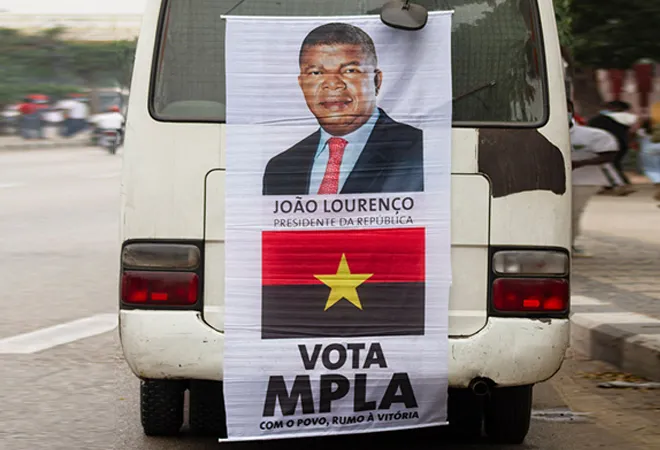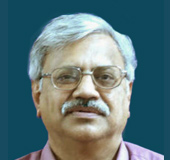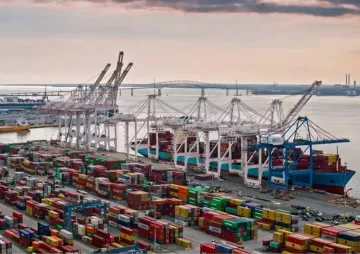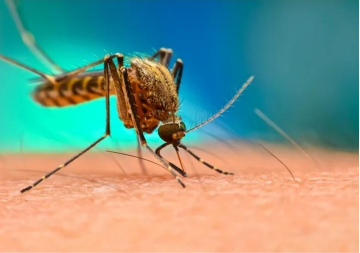
Angola is one of the major oil producing countries of Africa. It is also a member of the Organisation of Petroleum Exporting Countries (OPEC). In the midst of the ongoing Russo-Ukraine war and the bourgeoning crisis of energy security in the world economy, understanding the developments in Angola has certainly assumed greater significance. Currently, Angola is all set to conduct Presidential polls in August, 2022. The ruling party of Angola, namely People’s Movement for the Liberation of Angola (MPLA) in its Congress held in Luanda on 11 December, 2021, overwhelmingly elected the incumbent President João Lourenço for the second time, after 2017, to obtain the popular mandate. The MPLA has been a ruling party in Angola ever since it earned its independence from the Portuguese colonialism in 1975. In 1979, President José Eduardo dos Santos assumed power and ruled Angola for the next 38 years. His protracted rule over three decades certainly is not uncommon in the context of political regimes in Africa. In the past, several other African countries such as Libya, Zimbabwe, Sudan, Equatorial Guinea, Cameroon, the Republic of Congo, Eritrea, Uganda, and Chad have witnessed regimes that lasted more than three decades. Besides, Angola, like Sudan and Chad, has witnessed a prolonged civil war for almost three decades till the MPLA regime’s opponent Jonas Savimbi, who led the National Union for the Total Independence of Angola (UNITA), died in 2002. During dos Santos’s Presidency, Lourenço had served as Defense Minister and by supporting his candidature for Presidency, dos Santos aspired to exercise remote control over the new regime after Lourenço assumed Presidential office in 2017. However, Lourenço chose to carve out an independent path by asserting his power as the President. He vowed to fight nepotism and corruption of mammoth proportions, carry out market reforms, diversify Angola’s economic ties, reduce dependence of Angola’s economy on oil, and strengthen democratic institutions in Angola to bring about the change in governance. Before assessing how far these goals were implemented, it would be essential to situate the Lourenço regime in terms of its available material and human resources in Angola.
Unsurprisingly, the gap between the rich and the poor, amongst 33 million Angolan population, has been growing and an overwhelming majority of the people in Angola live with an average income of less than US$2 per day.
Material and human resources
In terms of material resources, Angola’s economy rests on precious resources including oil, natural gas, and diamonds. Since the oil sector constitutes one-third of Angola’s GDP and 90 percent of its exports, the fluctuations in oil prices in the world market always had adverse impact on the Angolan economy. In March 2020, the oil prices crashed from US $45 per barrel to US $32 per barrel which reduced Angola’s GDP by 60 percent overnight. Besides, the Angolan economy is undergoing recession since 2015 and COVID-19 has led to a further slowdown in the economy. Unsurprisingly, the gap between the rich and the poor, amongst 33 million Angolan population, has been growing and an overwhelming majority of the people in Angola live with an average income of less than US$2 per day. Combatting poverty, unemployment, and addressing development-related issues such as healthcare, education, and protection of human rights certainly have posed almost insurmountable challenges in the governance in Angola. By keeping the above circumstances at the backdrop, it is feasible to appropriately assess the performance of the Lourenço regime in major areas, in the following manner.
Fight against corruption
Since oil is the most significant area of earning revenues, complex and sophisticated structures of corruption have been interwoven around oil. For instance, Isabel dos Santos, the eldest daughter of the former President dos Santos, had emerged as the richest woman in Africa by running bank to telecom business. Her father had made her the Head of Sonangol, a state oil company that functioned like a state within the state. Her assets were variously estimated from over US $2 billion to US $3.5 billion. However, she was fired from her job by Lourenço in 2017 and the Angolan courts froze her assets. Subsequently, her name was removed by the Forbes magazine from the list of billionaires in January 2021. Likewise, in August 2020, José Filomeno dos Santos, the son of the former President, who was the head of Angola’s Sovereign Wealth Fund (SWF), was jailed for five years for fraud after US $500 million was transferred from the National Bank of Angola to an account in the United Kingdom. Although such actions did send a message that Lourenço means business, the phenomenon of corruption is not just rooted within, but has transnational dimensions.
Since oil is the most significant area of earning revenues, complex and sophisticated structures of corruption have been interwoven around oil.
A few instances of transnational bribery could make this clear. In 2016, a Brazilian conglomerate, namely Odebrecht, admitted in a plea agreement with the US Department of Justice (DoJ) that from 2006–2013, it made corrupt payments worth US $50 million to the government officials to secure public work contracts in Angola that approximately earned benefits of US $261.7 million. In two other separate instances, it had paid US $8 million and US $1.19 million, respectively, to individual government officials of Angolan state-owned business company to obtain business. To combat corruption, the Lourenço regime made strategic plan for the prevention and fight against corruption, sought help from the International Monetary Fund (IMF) and the World Bank (WB), and replaced 60 highly-placed officials. Angola, through the IMF programmes has obtained the highest aid of US $2.5 billion amongst African countries. Besides, the Lourenço regime also brought anti-corruption laws, anti-money laundering laws, and the laws that would lead to repatriation of stolen assets.
Initiating market reforms
While promoting the market economy, Angola is contemplating to privatise around 176 private companies. In crucial sectors like energy, Angola’s excessive dependence on China has always been conspicuous. During the past two decades, Angola had borrowed US $42.6 billion from China. By 2021, Angola owed over US $20 billion to a number of Chinese entities including US $14.5 billion for China Development Bank and nearly $5 billion to import Export Bank of China. To reduce its dependence on China as an investor and a creditor, Angola launched a charm offensive to woo western capital from the EU countries and the US. The US-owned telecom provider Africell has already opened a cell in Luanda since December 2021. Besides, Dubai’s port operator DP World has taken over Luanda’s multipurpose terminal port and started its operations from March 2021. Similarly, Argentinian multinational company Grupo Arcor is about to complete its US $45 million confectionary factory in Angola. Moreover, in December 2020, Angola invited India to invest in diamond mining and processing. Irrespective of these endeavours, owing to the fact that the Sino-Angolan ties have been structured under the previous regime for almost two decades, it will always take more time for Angola to diversify its economic ties with other countries or reduce its overwhelming dependence on oil as an export commodity.
Transition towards democracy
Immediately after assuming office, Lourenço regime initially tried to free the environment of repression. He also offered space to investigative journalist, human rights defender and anti-corruption crusader such as Rafale Marque de Marais, who was amongst the prominent critics of the dos Santos regime. However, it has been difficult to democratise Angola in the midst of President’s powerful executive authority and the MPLA’s dominance in state institutions. For instance, in Angola’s unicameral legislature that was elected in 2012, the ruling MPLA enjoyed comfortable majority in the National Assembly to block any unpalatable legislation. Recently, the Parliament approved the bill to review the Constitution promulgated in 2010. The Constitution revision law that was enacted in Angola has made the President all too powerful and has subordinated Legislature and Judiciary to Executive. This has allowed the Executive to repress the cries of the protestors and activists against the rising prices. The oversight institutions such as the Constitutional Court, Electoral Commission, and the entity responsible for media regulation are virtually ineffective. The TV channels are either state owned or declared illegal if they offer contrarian views. Besides, keeping highly controversial official at the Electoral Commission has further weakened the democratic credibility of the regime.
To reduce its dependence on China as an investor and a creditor, Angola launched a charm offensive to woo western capital from the EU countries and the US.
Amongst the dissenting voices, Adalberto Costa Junior, Leader of the UNITA, has accused the MPLA-led regime as anti-democratic as it is relying on “total censorship”. Moreover, Teixeira Cândido, Secretary General of the Union of Angolan Journalists has also criticised the pro-government media. The three opposition parties including the UNITA, the Democratic Bloc, and Praja Serving Angola have together constituted the United Patriotic Front (UPF) since December 2021 to meet the challenges posed by the growing authoritarianism under the incumbent MPLA regime. At the moment, the UPF still appears fragile to counter the behemoth of the MPLA regime. In addition to the mainstream opposition parties, the successive Angolan regimes have had to encounter sporadic attacks from a secessionist movement in Cabinda. Cabinda’s Front of the Liberation of the Enclave of Cabinda (FLEC) has been primarily operating from the oil-rich province of Cabinda since 2002. During 2019 and after the onset of COVID-19, the government chose to crackdown against the Cabinda activists by violating human rights.
Conclusion
With Lourenço, as the leader of the MPLA, seeking mandate for the second term, a careful analysis of his governance record shows that it is a mixed bag. So far, he has taken action against corruption and nepotism at high places and initiated legislative measures to control the depth and magnitude of corruption. However, these are necessary, but not sufficient measures to addressdeep-rooted corruption in Angola. Angola has also approached foreign investors, although China’s overwhelming presence in the Angolan economy has made the latter indebted to the former. Besides, reducing dependence on oil as export commodity still appears a herculean task. After initial efforts to combat authoritarianism, the current regime itself seems to have fallen into the authoritarian trap with the Executive wing enjoying wide and extensive powers over the Legislature and the Judiciary. Owing to the censorship of media and suppression of protests, it will be even harder for the UDF to unsettle the MPLA regime in the near future.
The views expressed above belong to the author(s). ORF research and analyses now available on Telegram! Click here to access our curated content — blogs, longforms and interviews.




 PREV
PREV


